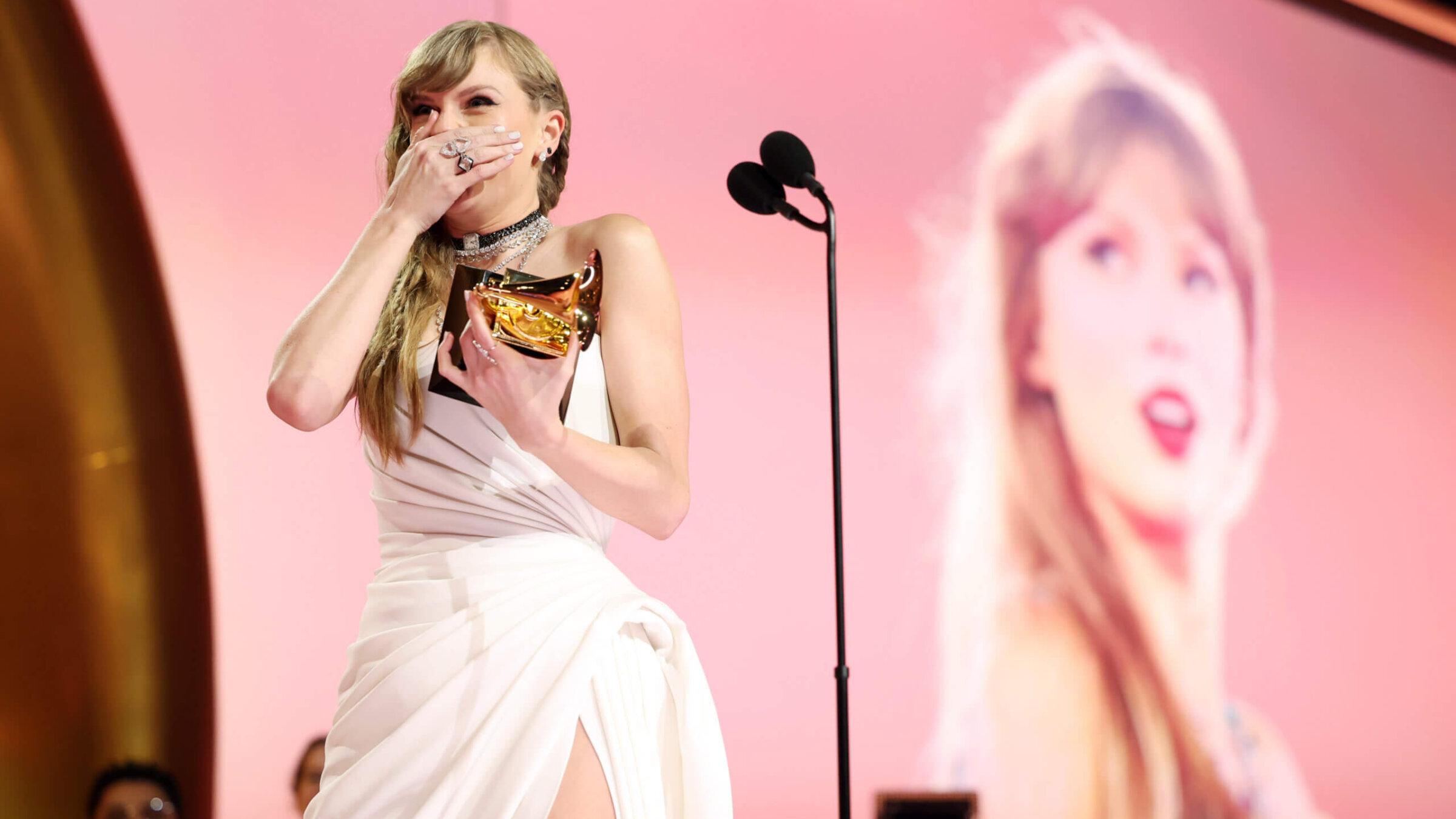Was Taylor Swift supposed to say ‘Free Palestine’ at the Grammys?
Annie Lennox did, and people are mad that the influential pop star has been silent

Taylor Swift at the Grammys, where she did not say anything about Palestinians, or really anyone else. Courtesy of Getty Images
Everyone is mad at Taylor Swift. I mean, everyone is always mad at Taylor Swift. Over football, her boyfriends, her music. This week, it’s over her failure to call for a cease-fire during the Grammys.
I don’t want to over-simplify things. People are still mad at Swift for basically every possible reason: for looking — or, to be accurate, not looking — at Celine Dion wrong; her football boyfriend; and winning anything at all when her music is, according to the haters, nothing special, even though there’s demonstrably something special about it because who else has a fan base like hers?
Perhaps Swift’s silence on the destruction in Gaza would not have made waves had Annie Lennox not used her moment on the Grammys stage to raise her fist and proclaim “artists for a cease-fire.” For many, that made for a stark contrast with Swift, who used her moment in the spotlight, as she accepted her Grammy for album of the year, not to make a political statement, but instead to talk about how much she likes making music and to announce a new album: The Tortured Poets Department. Her Instagram post about the album garnered over 2 million likes in just five minutes; now, two days later, it has nearly 14 million.
Clearly, Swift is able to drive news. Which is why people online are upset she hasn’t used that power to drive attention to Gaza.
“If Taylor Swift can get millions of likes on a post about her album within minutes, imagine the impact she could make if she said literally one word about Palestine,” reads one of the many tweets making the same point.
“I genuinely think Taylor Swift could change the trajectory of world politics if she tweeted Free Palestine,” reads another.
Swift does have inordinate cultural power. And she’s able, at least somewhat, to apply it politically; last year, she urged her followers to register to vote, resulting in record-breaking traffic on Vote.org, and a 35,000-person spike in new voter registrations within hours. Pro-Palestinian activists wish she’d leverage that power for Gaza, even though no one has any idea if she actually, well, supports Gaza, or Israel, or what she thinks about the war at all.
Until recently, Swift was noticeably silent about anything even vaguely political. It took her over a decade in the limelight to publicly declare herself a feminist. But recently, she’s taken more political stands: In 2020, she came out as a Democrat and endorsed Joe Biden. Trump supporters have turned harshly critical of the pop star for fear that she will be able to direct a huge section of the youth base in 2024, while liberal wonks predict she may save the race for Biden.
Her fans have political power too; they brought TicketMaster in front of Congress, accusing the company of violating anti-trust laws over its sale of tickets to Swift’s Eras Tour. But most of their power is directed at protecting Swift herself, and their own access to her. Despite the fear and anger Swift has generated from the right, her endorsements have not had electoral impact; when she came out against Tennessee candidate Martha Blackburn’s Senate bid, Blackburn still won.
And despite the fact that Swift has become increasingly political, she knows how to appeal to her very wide base — largely millennials and Gen Z women, who already lean liberal — by taking stands they already agree with, such as supporting LGBTQ+ rights and opposing Trump.
Her strategy is simple: Don’t say anything too edgy. That way, people can hear what they want.
Perhaps that’s why one tweet took a different tack to Swift’s silence on the war. The pop star is well-known for hiding secret messages in her lyrics, so he simply found the one he wanted to see. He circled letters in her newest album announcement to spell out: Free Palestine.

















